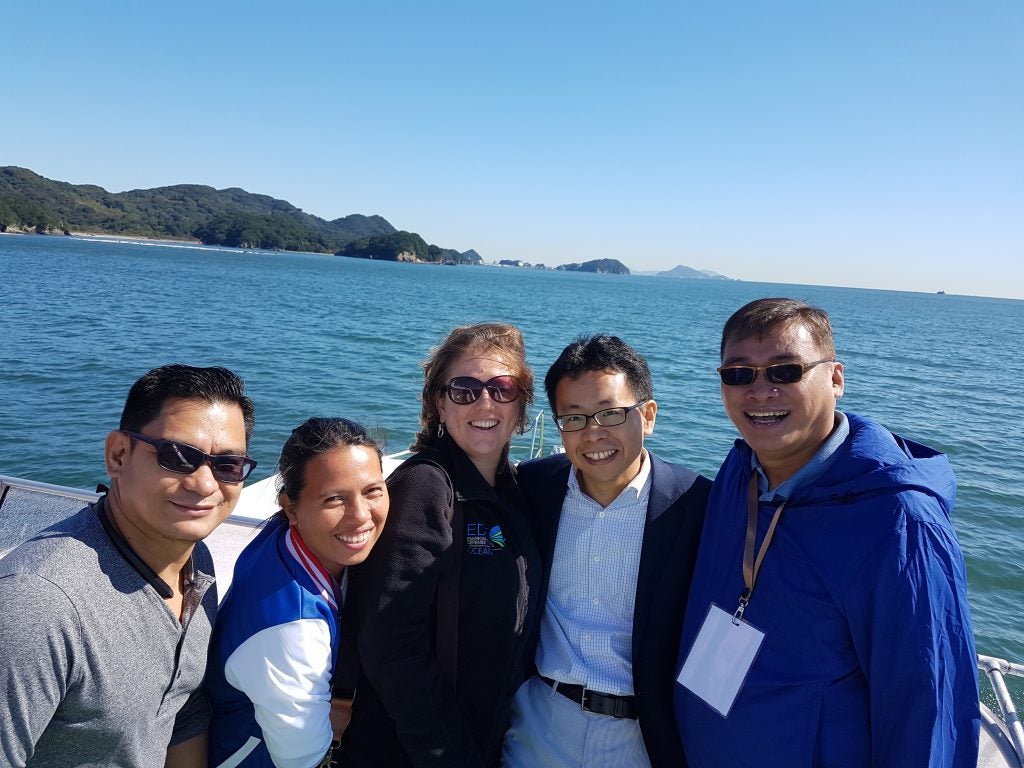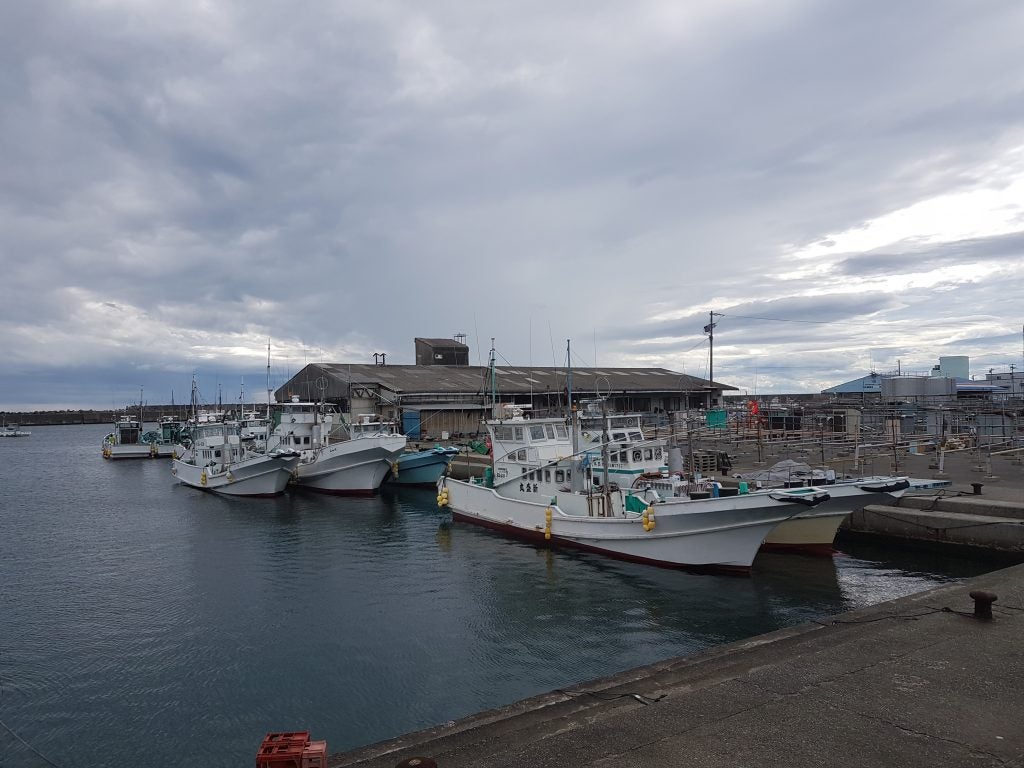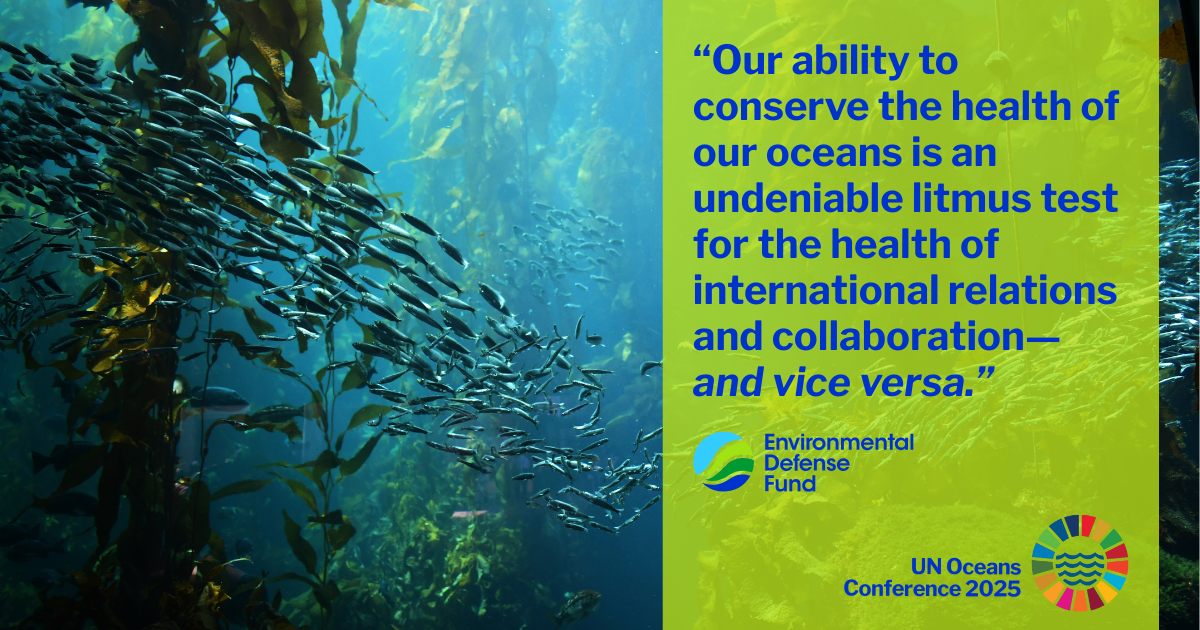Japan-Philippines fishery exchange highlights the benefits of collaboration
Bringing fishers and fishery managers from different places together through fishery exchanges is a powerful way to learn and build trust as you explore new approaches to manage fishing. After attending and leading dozens of fishery exchanges over the years, I have been amazed by the peer-to-peer discussions that take place, regardless of language barriers or cultural differences, and the candor of government officials and fishers describing the challenges they have faced or successes they have worked to achieve. It is incredible to see participants hear about something new or innovative that they could bring back to their communities. The excitement is contagious.
 While there are always major differences between fisheries that make some aspects of learning challenging or even inapplicable, we want people to recognize and appreciate the uniqueness of ones fishery. There is not a “one size fits all” approach to managing fisheries because each fishery has its own set of characteristics based on the history of the fishery, culture of the area, species composition, governance structure, resources, and most importantly fishers and their accustomed fishing practices. These exchanges are an opportunity to share experiences with others and to learn from each other about new and different approaches that can be adopted to improve fisheries management.
While there are always major differences between fisheries that make some aspects of learning challenging or even inapplicable, we want people to recognize and appreciate the uniqueness of ones fishery. There is not a “one size fits all” approach to managing fisheries because each fishery has its own set of characteristics based on the history of the fishery, culture of the area, species composition, governance structure, resources, and most importantly fishers and their accustomed fishing practices. These exchanges are an opportunity to share experiences with others and to learn from each other about new and different approaches that can be adopted to improve fisheries management.
Recently, EDF and our partner Rare-Philippines organized a Japan-Philippines exchange for a delegation from the Philippines to visit several fisheries in Mie Prefecture, Japan. We were particularly inspired to see firsthand what happens when fishers are empowered by the local government to make day to day management decisions: they pursue solutions that improve their livelihoods, and the long term sustainability of the fish they depend on. Those attending included champion mayors and their local government staff from eight municipalities that all have legally approved TURF+Reserves and are in the process of implementing these new systems on the water.
The focus of the exchange was to share experiences from the Philippines in designing TURF+Reserves in municipal waters with the longstanding coast-wide network of TURFs in Japan whose origin date back to the 17th century. We met with government officials from Mie prefecture, professors from the University of Tokyo, Ama divers in Toshijima, and cooperative members from the Mie Gaiwan cooperative, the Wagu Spiny lobster cooperative, and the Toshijima cooperative. We also had the opportunity to visit three fish landing sites to see offloads and witness the auction system.
Japanese fishers leading sustainable management efforts, with government support:
Japanese coastal fisheries are struggling to adapt to today’s changing world – an ageing fleet, shifting species range due to climate change and environmental degradation and incorporation of science-based management. However, it’s clear that fishers are empowered through the strong role devolved to them from the prefecture government to make day-to-day management decisions of their fisheries. They play an integral part in the decision making process, adapting to changes on the water and the dock. As a result, they have innovated and improved their cooperatives to keep them operational.
Over the years, changes have been made where cooperatives have merged and they have diversified their products to include live, fresh, and frozen products. Often times, they are involved in decisions to set much more stringent fishing regulations. For example, the Mie prefecture government sets minimum size limit restrictions that cooperatives often decide among themselves to adjust—setting more conservative limits to allow for more spawning to take place and leave resources for future generations.
The fisher cooperatives play a much bigger role in the day-to-day management of the coastal fisheries and decide how the fishers in the coop will fish and sell their product, while the prefecture government plays important roles to set them up for success.
These include:
- administering fishing rights (managed access/TURF) to the fishing cooperatives and setting general fishing requirements such as size limits, seasonal closures, gear restrictions;
- conducting research and developing new fishing technologies;
- acting as a bridge between the fisher cooperatives and the research development as extension workers; and
- supporting infrastructure projects and new developments for the fishing industry.
Collaborating yields benefits for people and fish:
The Wagu Spiny Lobster cooperative described the revenue pooling arrangement that they have developed over the years as a way to reduce fishing effort through harvest coordination. During several months of each fishing year, their 26 members decide to split up into five groups and jointly use only five boats for all the members. They all go out and fish in a special zone dedicated to the pooling system and share the revenue. Each group rotates through their membership of which boats they will be using so that boat use is spread evenly among the members.
 The coop members we met with who practice the pooling arrangement said that by sharing their experience and knowledge of best fishing practices and best fishing grounds, they were able to make more by targeting larger lobsters and using good handling practices to improve the quality. They are able to do this because they are fishing as a group instead of competing with one another, so they can take their time fishing to think more about quality. They are also reducing their operating costs through this arrangement by sharing vessels and the input costs of fishing. Finally, they shared that self-policing is very prevalent during the pooling fishing season as everyone is making sure that everyone follows the rules.
The coop members we met with who practice the pooling arrangement said that by sharing their experience and knowledge of best fishing practices and best fishing grounds, they were able to make more by targeting larger lobsters and using good handling practices to improve the quality. They are able to do this because they are fishing as a group instead of competing with one another, so they can take their time fishing to think more about quality. They are also reducing their operating costs through this arrangement by sharing vessels and the input costs of fishing. Finally, they shared that self-policing is very prevalent during the pooling fishing season as everyone is making sure that everyone follows the rules.
I am always so inspired to hear directly from fishers about their ingenuity and innovative ways they are adapting their harvesting strategies and marketing techniques to the impacts of climate change with shifting species composition, coral bleaching, changing consumer choices, unpredictable global markets, and declining resources. I will never miss out on an opportunity to attend a fishery exchange because I learn so many new things each and every time that inspires me and forces me to think creatively about fisheries management reform in the places I work to ensure thriving fisheries for fishers and marine resources alike.













One Comment
Thanks Emilie and very huge thanks to Kazu for the help on the trip. We could not have successfully conducted the learning exchange without your assistance. Until the next learning exchange..